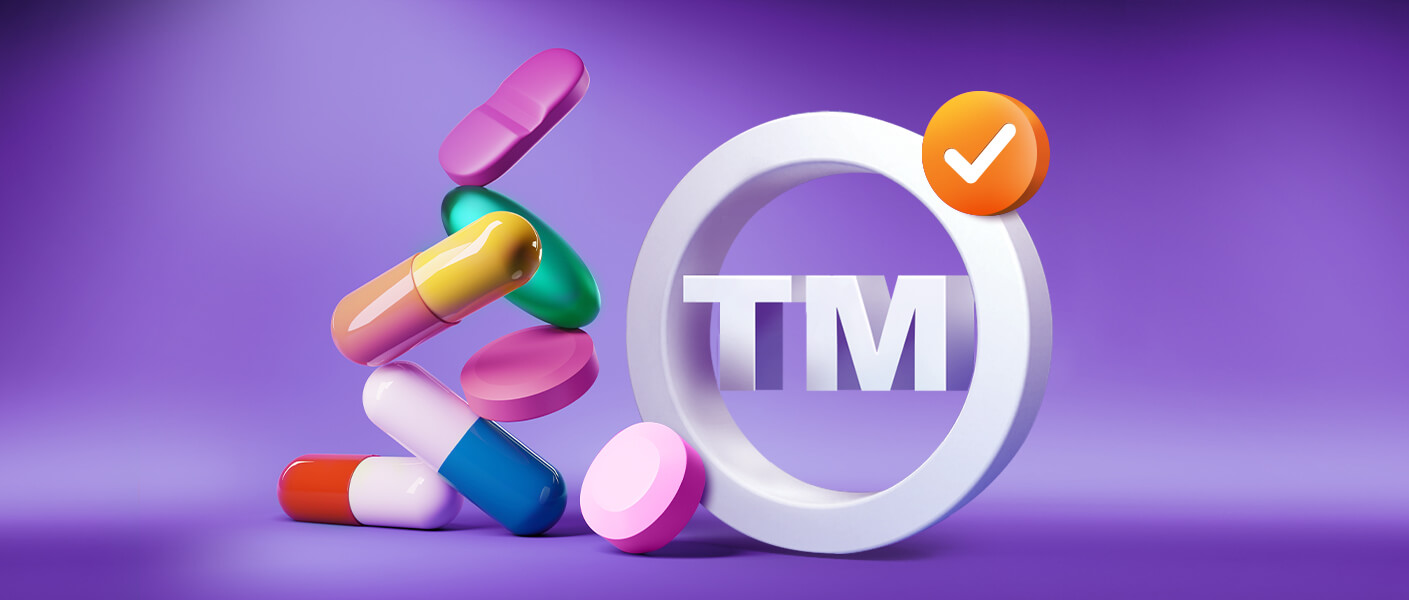Understanding pharmaceutical trademarks and their importance
April 6, 2021 By Dinesh ParmarThe pharmaceutical industry is one of the biggest stakeholders in trademark filing applications worldwide owing to the consistent progress in this sector.
Trademarks play a vital role for healthcare professionals, pharmacists, patients and the medical industry in general because of the impact they have on the health and life of several people and the unscalable damage it can cause in case of confusion or deception. Unlike other products, errors in the pharmaceutical industry can have severe side effects on the health of patients. Any margin for error in the nomenclature of a drug, such as medicines that sound similar or have similar packaging can amplify confusions. Which is why Courts are stricter and have more stringent rules for comparison of pharmaceutical trademarks.
All pharmaceutical products have multiple names:
-a brand name which is commonly used by the public,
-a chemical or scientific name and
-a generic or non-proprietary name.
According to the WHO Guidelines surrounding this, the generic or International Nonproprietary Name is a unique name used globally and since these are generic, trademarks cannot be issued for these, especially if it includes their common stems. Often, the scientific names of medicines contain technical details about the disease, organ or ingredients, making them complicated and easily misunderstand-able. Surprisingly, proprietary names of drugs, which are usually the traditional markers of a medicine and become the common name used for it, aren’t the only type of trademark protection available for pharmaceutical companies. Non-traditional marks such as the colour and shape marks can also be protected if they have managed to acquire distinctiveness about the drug’s appearance. Say for example, ‘the purple pill’.
However, finding an appropriate proprietary name can be quite challenging in the pharmaceutical industry because to register a trademark, the terms used for the medicine must go through the SLAs, Food and Drug Administration (FDA) and the USPTO before it can become a registered trademark used in business. Typically, during the early development of a new drug, it is recommended that manufacturers submit a list of proposed names to the FDA. These will then be presented to the Division of Medication Error Prevention and Analysis, where the names will be reviewed with a focus on preventing medical errors. The proposed names will then be scrutinized for both visual and auditory similarity to other existing drug names.
Very often, pharmaceutical companies coin names for their products based on the prime ingredients, the ailment it serves or an organ related to it. However, this further increases the chances of several companies arriving on similar names that are likely to cause confusion.
Purchasers of goods may not have technical knowledge about the medicines and may not be familiar with the language in which the trademark is written. Even slight differences in spellings of different words that may phonetically sound similar can cause them to misunderstand and pick the wrong medicines. This creates a need for clear indicators of names for distinguishing medical products.
To avoid the risk of infringement or passing off action, the following things should be kept in mind when choosing names for pharmaceutical products:
1. Do not use descriptive or generic terms that are common indicators of source, ingredients or ailments,
2. Avoid suggestive words or terms,
3. Conduct preliminary searches through the Trademarks Registry website for prior registrations or applications for similar sounding names,
4. Conduct a thorough Google search to ascertain existing medicines in the market and avoid names or taglines that look or sound or have identical packaging,
5. Avoid terms or marks that contain inert or inactive ingredients which may be misleading to the users.
Trademarks and registered brand names, in general, help establish a feeling of trust among users as well as help businesses connect with the audience. Essentially in the pharmaceutical industry, trademarks become significantly more important because of the dire need for customers to be able to easily differentiate between medicinal products on the basis of the name and trade dress to reduce medication errors.
As a trademark law firm, we not only help you with defending your pharmaceutical trademarks but help you create a strong legal base for your business by helping you navigate trademarking from the initial stages itself. At Parker and Parker Co. LLP, our attorneys work with clients looking for trademark registration in Ahmedabad, Gujarat, India and several other countries to select the most appropriate and strongest trademark & pharmaceutical brand names. Our IPR services include registration of trademarks and service marks in India and globally, conducting appropriate searches to determine priority and availability of marks, and negotiation and drafting of licenses, assignments, and other related agreements. If infringement or trademark conflicting disputes arise in India, our skilled trial attorneys represent clients in resolutions and through several phases of litigation.





